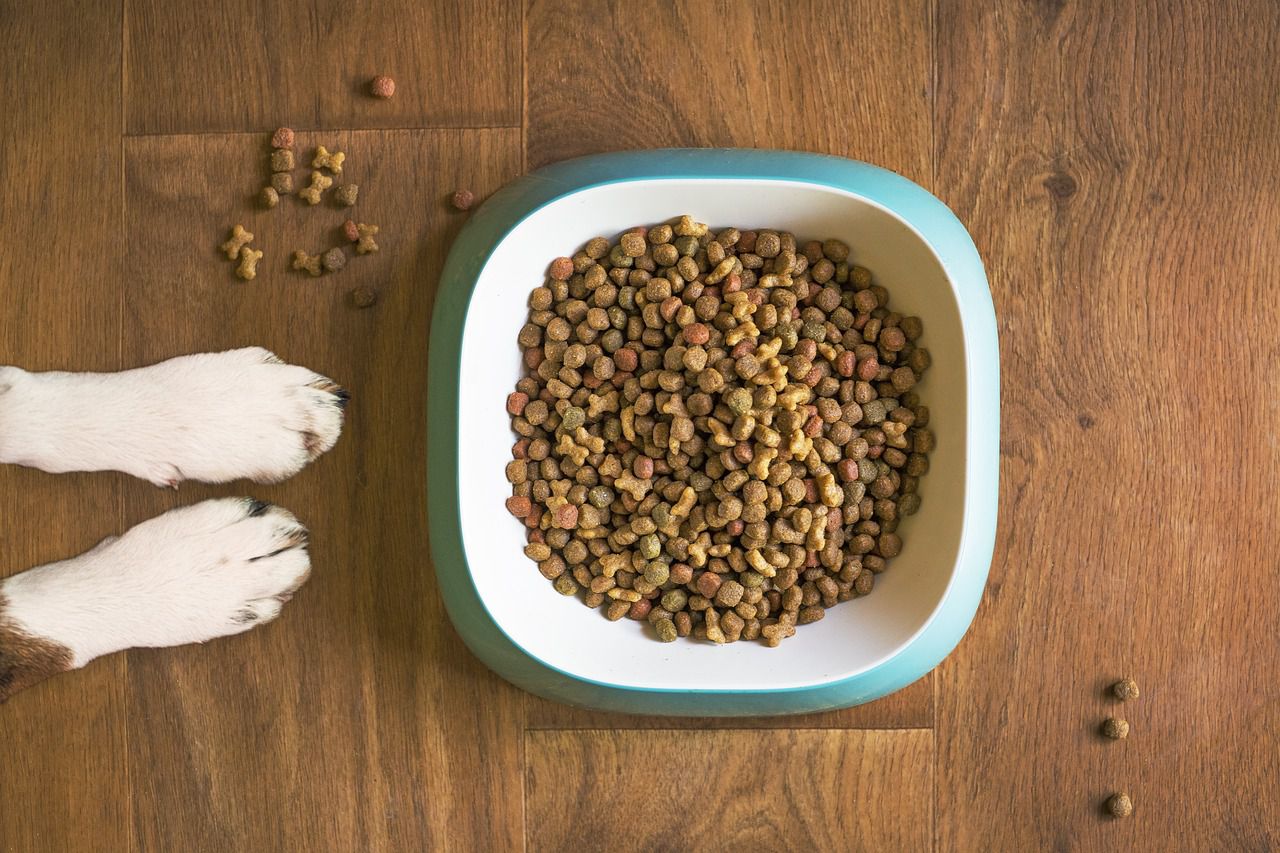Dogs can generally eat a diet that includes both grains and meat.
Dogs are omnivores, which means they can derive nutrition from a combination of plant-based and animal-based foods.
However, there are a few important considerations to keep in mind.

Balance
A balanced diet is essential for your dog's health.
If you're feeding them a combination of grains and meat, make sure the overall diet meets their nutritional needs.
Consult with a veterinarian or a veterinary nutritionist to ensure that your dog is getting the right balance of proteins, carbohydrates, fats, vitamins, and minerals.
Quality Ingredients
Both the meat and grains you feed your dog should be of high quality.
Lean meats like chicken, turkey, beef, and fish are good protein sources.
When it comes to grains, options like brown rice, quinoa, and oatmeal are preferable over highly processed grains.
Allergies and Sensitivities
Some dogs may have allergies or sensitivities to certain grains or meats.
If you notice any adverse reactions such as gastrointestinal issues, itching, or skin problems after introducing a specific food, consult a veterinarian to determine the cause and adjust the diet accordingly.
Consult a Professional
If you're considering making significant changes to your dog's diet, it's advisable to consult a veterinarian or a veterinary nutritionist.
They can provide guidance based on your dog's individual needs and health considerations.
Commercial Dog Food
If you're unsure about creating a balanced diet with grains and meat, you can opt for high-quality commercial dog food that contains a balanced mix of ingredients.
Look for options that list meat as the primary ingredient and avoid those with excessive fillers and artificial additives.













